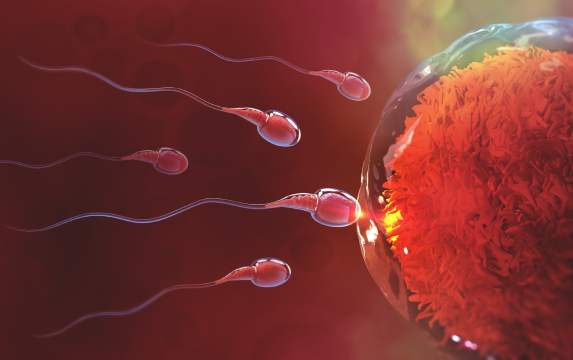Hormones are chemical messengers that carry messages between cells and systems to affect a wide array of fundamental functions, including sexual function
The causes for erectile dysfunction (ED) are varied and include vascular, neural, psychological as well as hormonal (endocrine) problems – the latter being the focus of this article. Hormones are small molecules secreted from endocrine glands into the blood stream, where they circulate until they reach the cells of different tissues and organs. They help control many major processes in the body, and due to their multi-system effects, they have a central role in maintaining our general health. Hormones influence many functions in the male body, including erectile function, libido, sperm production, energy levels and muscle mass, and this is why hormonal imbalances can lead to sexual dysfunction. Continue reading to find out which hormones affect male sexual function and in which circumstances hormonal imbalances might lead to ED:
Low Levels of Testosterone
Testosterone is the primary male sex hormone. In men it is mainly produced by the testicles and its production is controlled by the brain (the hypothalamus and the pituitary gland). Testosterone is involved in the development of the male sex organs and its levels surge at puberty – a phase characterized by penile growth, increased libido, the development of the secondary sexual characteristics (pubic, chest and facial hair growth, the deepening of the voice, an increase in muscle mass and more) as well as sperm production. In addition, the erectile bodies (the corpus cavernosa) have receptors for testosterone and it is well known that this hormone plays an important role in their structure and function. These erectile bodies are responsible for generating penile erections – a process co-dependent on a complex interaction of psychological, neural, vascular and hormonal factors.
However, certain conditions can cause testosterone deficiency (hypogonadism in medical jargon), a situation in which the body fails to produce enough of this hormone. This may have a severe impact on the general health, the sexual health and the quality of life in men, who might experience loss or decline in libido and sexual activity, ED – including reduction in the number and quality of erections, decline in the intensity of orgasms as well as a reduction or lack of response to ED drug treatment (such as Viagra). Other symptoms include lethargy, reduced vitality, low mood, sleep disturbances, memory problems and more.
It is common to observe a decline in the production of testosterone as men get older. This is why this condition is extremely common among older men, though not just. A natural age-related reduction in testosterone starts around the age of 35 and gradually continues at a rate of 1%-2% per year. It follows, for example, that the level of testosterone among men aged 80 is only 30% of its average level among younger men. Furthermore, testosterone deficiency might occur at any age as a result conditions affecting its production, either by the testicles or the pituitary gland. It has been found that 40% of the men aged 45 and above have testosterone deficiency.
Primary testosterone Deficiency
When testosterone deficiency is caused by a failure of the testicles to make enough testosterone, it is referred to as a ‘primary testosterone deficiency’, which might (inter alia) trigger ED. In blood tests, this condition is characterized by low testosterone levels and high levels of the hormones LH and FSH.
Common causes include:
- Injury to the testicles
- Chemotherapy or radiotherapy
- Mumps
- A rare genetic congenital disease called Klinefelter syndrome which affects various aspects of the body
- Undescended testicles
In addition, primary testosterone deficiency occurs in 1-2% of older men.
Secondary Testosterone Deficiency
Testosterone deficiency can also be caused due to a problem in the parts of the brain (the hypothalamus and the pituitary gland) which produce hormones that stimulate the testicles to make testosterone. This condition is called ‘secondary testosterone deficiency’, which means that the testicles are functioning well but they fail to produce testosterone due to a hormonal imbalance at the level of the brain. A secondary deficiency is characterized by low testosterone blood levels and low-normal blood levels of LH and FSH.
Common causes include:
- HIV or AIDS
- Problems related to the pituitary gland in the brain
- certain medications, such as opiate painkillers
Obesity
Obesity is a disease associated, inter alia, with hormonal imbalances, reduced testosterone level and consequently, with ED, reduced sperm production and infertility. However, even with normal testosterone levels, men who are obese have an increased risk of ED, and this risk rises as the body mass index (BMI) is higher. Central obesity is another risk factor of ED, as hormonal components in visceral fat affect testosterone production and increase the risk of cardiovascular problems. Likewise, obesity is a risk factor of psychogenic ED.
Diabetes
Diabetes is a multi-factorial endocrine-metabolic disease. Studies have shown that diabetic men are at a high risk (50%) of experiencing erectile dysfunction and other sexual health problems, including decline in sexual desire, orgasmic disorders, retrograde ejaculation, and more. The prevalence of ED among diabetic patients is high: 2-3 times more than its prevalence among healthy men.
This happens partly because diabetic men are at a higher risk of developing testosterone deficiency (hypogonadism) and also problems related to arteries and nerves supporting the penis. Combined together, all these factors can lead to ED.
Hormonal Imbalance: Underactive Thyroid
Thyroid hormones regulate many body functions, including sexual function, metabolism and energy balance. Therefore, an underactive thyroid (hypothyroidism) can manifest in hormonal imbalances and cause decreased libido, tiredness, weight gain as well as reduced testosterone and sperm production, which might lead to ED and infertility.
Hormonal Imbalance: Prolactin
An increase in prolactin hormone in the blood is associated with erectile dysfunction, decline in libido and other problems with sexual function, as higher concentration of prolactin suppresses testosterone production. Prolactin production can be elevated due to various causes, including hypothyroidism, the use of certain medications and more rarely a benign tumor in the pituitary gland.
Hormonal Imbalance: Estrogen
There are cases where the age-related decline in testosterone levels among men aged 40 and above, leads to a gradual elevation in estrogen levels which causes hormonal imbalance. Liver disease might likewise cause an increase in estrogen levels among men. This testosterone-estrogen imbalance (also known as estrogen dominance) might give rise to ED, including a reduction in spontaneous and nocturnal erections and high stress levels.
Hormonal Imbalance: Cortisol
Cortisol is a steroid hormone that regulates a wide range of important processes in the body, including metabolism and the immune response. It is commonly known as the “stress hormone” because its production increases at times of high mental or physical stress. Cortisol levels gradually rise with age after the age of 40. High cortisol levels can disrupt hormonal balance and suppress testosterone production. In addition, high cortisol levels are associated with narrowed arteries and penile blood flow restriction. This is why chronic high cortisol levels can lead to ED.
Additionally, our brain triggers cortisol release in response to many different kinds of stress, including injury, surgery, diseases (diabetes, Parkinson’s, Cushing’s syndrome etc.’). Smoking, excessive alcohol consumption and drug use can cause chronic cortisol elevation and ED.
The Company hereby clarifies that the information contained on the website is for informational purposes only, and is not intended to be a substitute for professional medical and healthcare advice, and does not constitute medical advice or opinion. Always seek the advice of your physician or other qualified health provider with any medical condition or question you may have regarding a medical condition.





